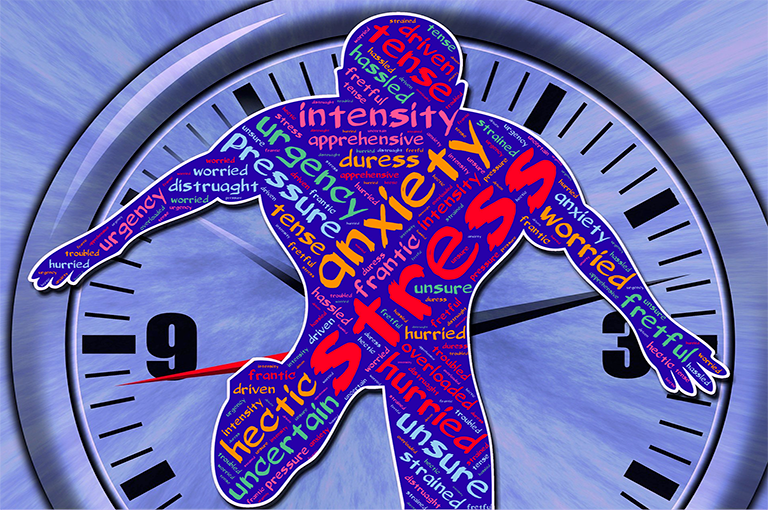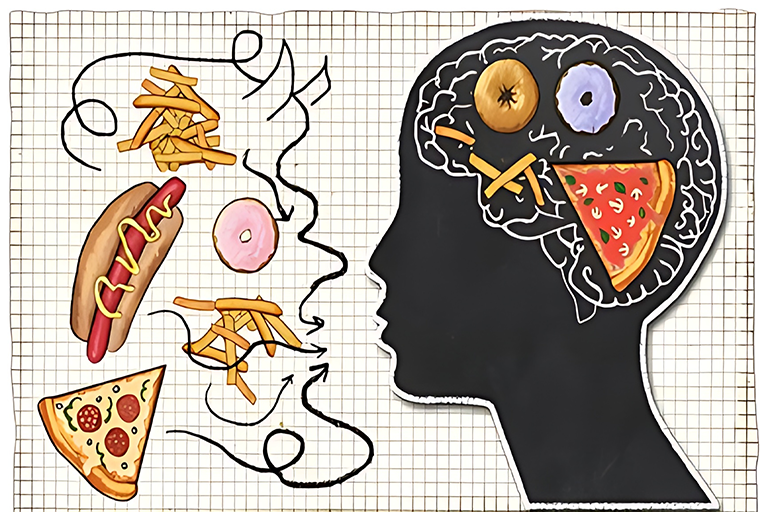A Guide to Stress Management with Cognitive Behavioral Therapy (CBT)
Stress is an everyday experience that creeps into our lives in various forms, whether it’s the pressure of meeting deadlines at work, juggling personal responsibilities, or dealing with unexpected challenges.
It’s our body’s natural response to demands and threats, triggering a “fight or flight” reaction that releases stress hormones like cortisol and adrenaline. While short bursts of stress can be motivating, chronic stress can take a toll on our physical and mental well-being, leading to anxiety, sleep problems, and even health issues.
Understanding stress is the first step in learning how to manage it effectively and lead a more balanced life.
Major Causes Of Stress In Today’s World
In today’s fast-paced world, stress has become an almost ubiquitous part of life, affecting people of all ages and backgrounds. While the sources of stress can vary widely from one person to another, some major causes tend to be common culprits for many. Here, we’ll explore some of the significant triggers of stress.
Work-Related Stress: The demands of the modern workplace can be overwhelming. Excessive workloads, tight deadlines, job insecurity, and the pressure to constantly perform at a high level can create substantial stress for employees. Moreover, workplace conflicts and the challenges of achieving a work-life balance contribute to stress.
Financial Stress: Money matters are a significant source of stress for many individuals and families. Concerns about paying bills, managing debts, saving for the future, or dealing with unexpected expenses can lead to chronic stress and anxiety.
Relationship Issues: Difficulties in personal relationships, whether with a partner, family member, or friend, can be emotionally draining. Conflict, misunderstandings, or the strain of managing various relationships can all contribute to stress.
Health Concerns: Health-related stress can stem from various sources, including chronic illnesses, medical bills, and worries about one’s health or the health of a loved one. The fear of illness and the challenges of navigating the healthcare system can add to the burden.
Life Transitions: Significant life changes, such as moving, getting married, having children, or dealing with the loss of a loved one, can be incredibly stressful. Even positive life events can trigger stress as they often come with a need to adapt to new circumstances.
Social Pressure: Societal expectations and the desire to meet certain standards of success, appearance, or social status can lead to stress. The constant comparisons to others, especially in the age of social media, can exacerbate feelings of inadequacy and stress.

Over commitment and Time Management: Juggling multiple responsibilities, commitments, and obligations can be overwhelming. Poor time management and the inability to say no can lead to chronic stress as people struggle to meet all their commitments.
Uncertainty and Change: The unpredictability of life, including political and environmental changes, can create stress. Uncertainty about the future and the feeling of a lack of control can be particularly anxiety-inducing.
It’s important to recognize that stress is a natural response to these and other challenges in life. However, when stress becomes chronic and overwhelming, it can lead to various health issues.
Learning effective stress management techniques, seeking support from friends and professionals, and making positive lifestyle changes are essential steps in mitigating the impact of these major stressors on our well-being.
CBT For Stress: A New Approach
Cognitive Behavioral Therapy (CBT) is a highly effective approach for managing stress. It works by targeting the root causes of stress, which often lie in our thought patterns and behaviors.
CBT helps individuals recognize and challenge negative thought patterns or cognitive distortions that contribute to stress. For instance, if someone tends to catastrophize or engage in all-or-nothing thinking when faced with stressors, CBT encourages them to reframe these thoughts more realistically.

CBT for stress also equips individuals with practical coping strategies. These strategies include relaxation techniques, time management skills, problem-solving methods, and assertiveness training. By learning these skills, individuals can reduce their emotional and physiological responses to stressors and enhance their ability to navigate challenging situations.
Moreover, CBT is a customizable approach that can be tailored to an individual’s unique circumstances. Whether the stress stems from work, relationships, or other life challenges, CBT provides a framework for addressing and managing it effectively. Overall, CBT empowers individuals to take control of their stress, improve their emotional well-being, and build resilience in the face of life’s pressures.
Management Of Stress
Stress is a common part of life, but managing it effectively is crucial for our well-being. Fortunately, there are simple stress management techniques you can incorporate into your daily routine. Here are some easy-to-follow strategies:
- Deep Breathing: When you feel stressed, take a moment to focus on your breath. Inhale deeply through your nose for a count of four, hold for a count of four, and then exhale slowly through your mouth for a count of six. Repeat this several times to calm your nervous system.
- Mindfulness Meditation: Practicing mindfulness involves paying attention to the present moment without judgment. You can start with short mindfulness sessions, focusing on your breath or the sensations in your body. This helps reduce racing thoughts and promotes relaxation.
- Physical Activity: Exercise is a fantastic stress reducer. Even a short walk or some stretching exercises can release endorphins, which are natural mood lifters. Regular physical activity also improves overall mental and physical health.
- Time Management: Organize your tasks and prioritize them. Create a to-do list and break tasks into smaller, manageable steps. This approach can prevent feelings of being overwhelmed and help you stay focused.
- Relaxation Techniques: Explore relaxation methods such as progressive muscle relaxation or guided imagery. These practices can help relax your body and mind, reducing tension and stress.
- Connect with Others: Share your feelings and concerns with trusted friends or family members. Social support is crucial for managing stress. Talking about your worries can provide relief and a fresh perspective.
- Limit Screen Time: Excessive screen time, particularly on social media, can contribute to stress and anxiety. Set boundaries for your digital devices and spend more time engaging in real-life activities.
- Get Adequate Sleep: Quality sleep is essential for stress management. Establish a regular sleep routine and create a comfortable sleep environment to ensure you get the rest you need.
- Practice Gratitude: Take a few moments each day to reflect on the positive aspects of your life. Focusing on gratitude can shift your perspective and reduce stress by promoting a positive mindset.
- Seek Professional Help: If stress becomes overwhelming or persists for an extended period, consider seeking support from a mental health professional. Therapy or counseling can provide effective strategies for managing stress.
Remember that different techniques work for different people, so it’s essential to find what works best for you.
Incorporating these simple stress management techniques into your daily life can help you reduce stress, improve your overall well-being, and enhance your ability to cope with life’s challenges.
Stress is a common experience, but it doesn’t have to control your life.
Cognitive Behavioral Therapy (CBT) for stress offers a structured and effective approach to understanding and managing it. By recognizing negative thought patterns, reframing your thoughts, developing coping strategies, setting realistic goals, and incorporating mindfulness, you can regain control over your stress levels and lead a more balanced and fulfilling life!
Learn more: Mental Health Awareness
& How is climate change affecting our mood and thus our mental health?
Bijoylaxmi Das, Mental Health Blogger, Your Confidant





